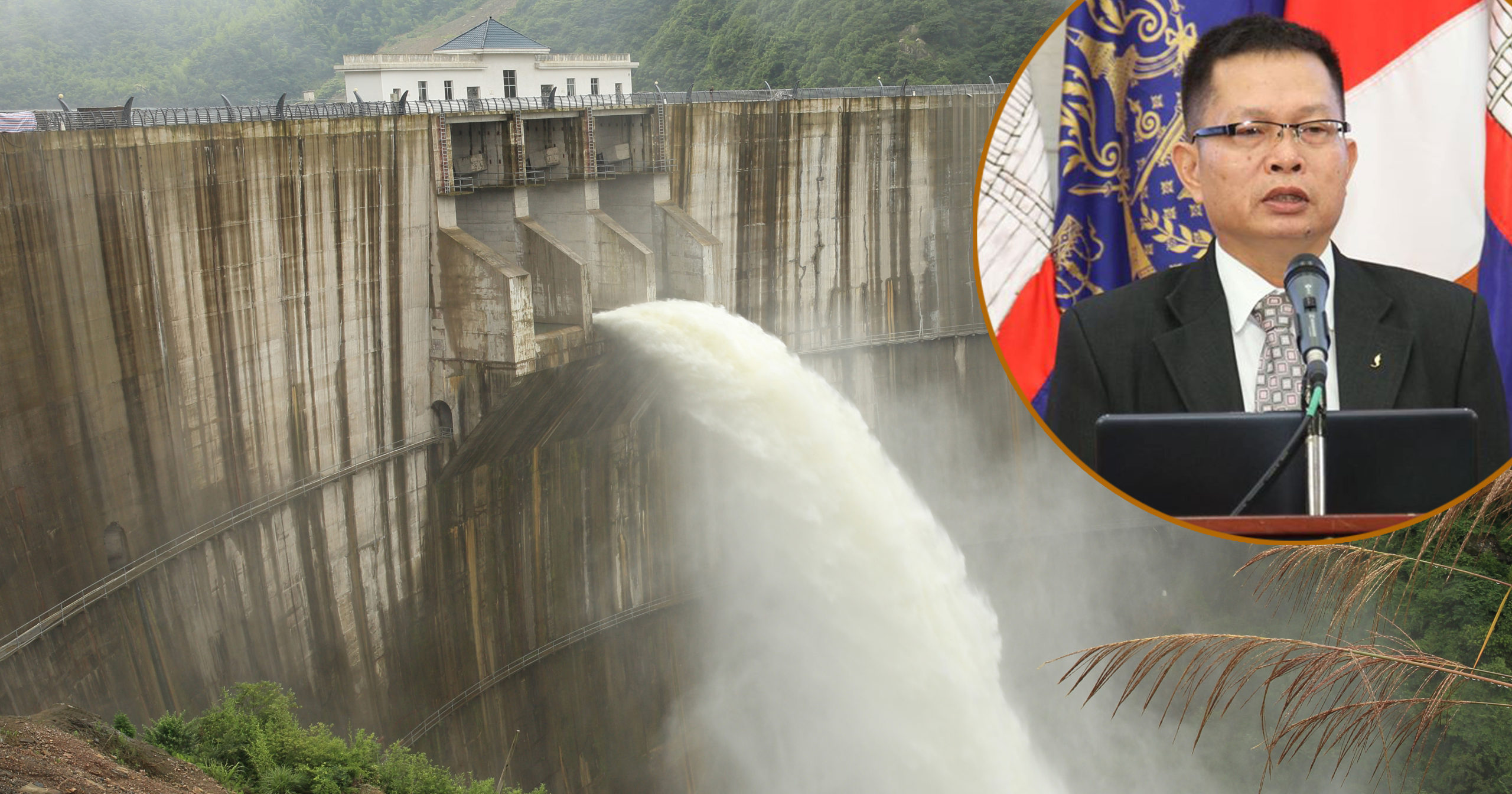សម្តេចតេជោប្រកាសបរិច្ចាកដី ២ហិកតា តម្លៃជាង $១០លាន សង់កន្លែងស្នាក់នៅជូននិស្សិតនារីក្រីក្រ
សម្តេចតេជោ ហ៊ុន សែន ប្រកាសបរិច្ចាគដី ២ហិកតា តម្លៃជាង ១០លានដុល្លារ សម្រាប់សាងសង់អន្តេវាសិកដ្ឋានជូននិស្សិតជាស្ត្រីក្រីក្រមកពីបណ្តាខេត្ត ដែលកំពុងបន្តការសិក្សានៅរាជធានីភ្នំពេញ។ នេះបើតាមសារដែលបានប្រកាសតាមរយៈទំព័រហ្វេកប៊ុកផ្លូវការរបស់សម្តេច នៅថ្ងៃទី៤ ខែមិថុនា ឆ្នាំ២០២៥។ បើតាមការបញ្ជាក់របស់សម្តេចតេជោបានឱ្យដឹងថា ដំបូងដី ២ហិកតានេះ ត្រូវបានទិញទុកសម្រាប់សាងសង់ស្ថានីយទូរទស្សន៍បាយ័ន ដែលមានទីតាំងស្ថិតនៅតំបន់ជ្រោយចង្វារ ប៉ុន្តែក្រោយពីបានពិភាក្សាជាមួយភរិយោ និងកូនស្រីរបស់សម្តេចរួច សម្តេចក៏សម្រេចប្រគល់ដីមួយកន្លែងនេះជូនទៅក្រសួងកិច្ចការនារី ដើម្បីសាងសង់អន្តេវាសិកដ្ឋានវិញ។ អន្តេវាសិកដ្ឋាននេះ នឹងត្រូវសាងសង់ឡើងចំនួន១២០បន្ទប់ សម្រាប់ផ្តល់ជាកន្លែងស្នាក់នៅដល់និស្សិតស្ត្រីចំនួន ៥០០នាក់។ ក្នុងបន្ទប់នីមួយៗនឹងត្រូវរៀបចំសម្រាប់និស្សិតស្រីស្នាក់នៅចំនួន ៤នាក់ ដោយមានភ្ជាប់ជាមួយបន្ទប់ទឹក និងចង្ក្រានបាយដាច់ដោយឡែក។ បន្ថែមពីនេះ សម្តេចតេជោ ក៏បានណែនាំឱ្យមានការកសាងប៉ុស្តិ៍សុខភាពមួយនៅជាន់ផ្ទាល់ដីនៃអគារអន្ទេវាសិកដ្ឋាន ដែលរួមមានបន្ទប់សម្រាប់ពិនិត្យជំងឺ និងបន្ទប់សម្រាប់គ្រូពេទ្យប្រចាំការ ដើម្បីធានាសុខុមាលភាពរបស់និស្សិតដែលស្នាក់នៅទីនោះ។ សម្តេចតេជោបន្តថា នៅពេលសាងសង់រួច អន្តេវាសិកដ្ឋាននេះ នឹងត្រូវប្រគល់ជូនជាសម្បត្តិរដ្ឋ ហើយការគ្រប់គ្រងនឹងស្ថិតនៅក្រោមការទទួលខុសត្រូវរបស់ក្រសួងកិច្ចការនារី។ តាមរយៈសារចុងក្រោយ សម្តេចបានសម្តែងក្តីសង្ឃឹមយ៉ាងមុតមាំថា៖ «ខ្ញុំសង្ឃឹមថាអន្ទេវាសិកដ្ឋាននេះនឹងជួយកាត់បន្ថយការលំបាករបស់និស្សិតជាស្ត្រី និងជួយពន្លឿនដល់ការវិនិយោគកសាងសមត្ថភាពរបស់ស្ត្រី និងការចូលរួមរបស់ស្ត្រីក្នុងការកសាងប្រទេសជាតិ»។ - Video Advertisement -
កម្ពុជាទទួលបានគម្រោងថ្មីចំនួន១២ មានទុន $១៥៥លាន បន្ថែមក្នុងវិស័យឧស្សាហកម្ម និងថាមពល
ដើម្បីជំរុញនិងលើកកម្ពស់ទិដ្ឋភាពសេដ្ឋរបស់ខ្លួន ក្រុមប្រឹក្សាអភិវឌ្ឍន៍កម្ពុជា បាននិងកំពុងពិនិត្យពិភាក្សាលើគម្រោងវិនិយោគមានលក្ខណៈសម្បត្តិគ្រប់គ្រាន់ចំនួន១២គម្រោង ដែលមានទុនវិនិយោគសរុប ១៥៥លានដុល្លារ បន្ថែមចូលក្នុងវិស័យឧស្សាហកម្ម និងហេដ្ឋារចនាសម្ព័ន្ធ។ នេះបើតាមកិច្ចប្រជុំចេញចូលតែមួយដឹកនាំដោយឯកឧត្តម ជា វុទ្ធី អគ្គលេខាធិការគណៈកម្មាធិការវិនិយោគកម្ពុជា នៅថ្ងៃទី៣០ ខែឧសភា ឆ្នាំ២០២៥។ គម្រោងទាំងនេះមិនត្រឹមតែត្រូវបានរំពឹងថានឹងជួួយជំរុញកំណើនសេដ្ឋកិច្ចប៉ុណ្ណោះទេ ប៉ុន្តែក៏នឹងជួួយបង្កើតការងារបានប្រមាណ ៧,៥ពាន់កន្លែង សម្រាប់ប្រជាពលរដ្ឋក្នុងតំបន់ផងដែរ។ គួរបញ្ជាក់ថា មុខសញ្ញាវិនិយោគក្នុងវិស័យឧស្សាហកម្មចំនួន ១១គម្រោង (រោងចក្រកែច្នៃលោហធាតុ, ផលិតក្រដាសកាតុង, ផលិតផលិតផលពិធីបុណ្យនានា-សម្លៀកបំពាក់បុណ្យ Halloween តុក្កតា ទៀន និងសម្ភារៈបន្ទាប់បន្សំ, ផលិតសម្ភារៈសត្វចិញ្ចឹម និងសម្ភារៈក្មេងលេង, ផលិតកម្រាលជ័រ និងបន្ទះក្តារ, ផលិតថ្នាំលាប និងទឹកថ្នាំ (ពីសារធាតុគីមី), ផលិតអំពូលភ្លើង សម្ភារៈលម្អក្នុងផ្ទះ និងគ្រឿងបន្ទាប់បន្សំអគ្គិសនីគ្រប់ប្រភេទ, ផលិតកង្ហារគ្រប់ប្រភេទ និងគ្រឿងបន្ទាប់បន្សំអេទ្បិចត្រូនិកគ្រប់ប្រភេទ, ផលិតគ្រឿងសង្ហារិម, ផលិត និងផ្គុំដំទ្បើងកង្ហារ និងផលិតតុក្កតាគ្រប់ប្រភេទ) និងវិស័យហេដ្ឋារចនាសម្ព័ន្ធចំនួន១គម្រោង (អភិវឌ្ឍន៍ស្ថានីយផលិតអគ្គិសនីដើរដោយថាមពលពន្លឺព្រះអាទិត្យអានុភាព១០០មេហ្កាវ៉ាត់ ខេត្តបាត់ដំបង)។ គម្រោងវិនិយោគទាំង១២ខាងលើនេះ គ្រោងនឹងបោះទីតាំងនៅរាជធានីភ្នំពេញ ខេត្តកណ្តាល ខេត្តតាកែវ ខេត្តកំពង់ស្ពឺ ខេត្តព្រះសីហនុ ខេត្តប៉ៃលិន និងខេត្តបាត់ដំបង […]
អ្នកវិនិយោគមកពី ៤០ក្រុមហ៊ុន កំពុងសម្លឹងរកឱកាសវិនិយោគនៅកម្ពុជា ដោយផ្តោតលើវិស័យថាមពល និង…
សហគ្រាស នៃសភាពាណិជ្ជកម្មអន្តរជាតិចិន ដែលមានប្រមាណ ៤០ក្រុមហ៊ុន បានមកជួបពិភាក្សាជាមួយសភាពាណិជ្ជកម្មកម្ពុជា ដើម្បីស្វែងរកឱកាសវិនិយោគលើវិស័យសំខាន់ៗនៅកម្ពុជា។ នេះបើយោងតាមជំនួបពាណិជ្ជកម្មរវាងភាគីទាំងពីរ ដែលដឹកនាំដោយអ្នកឧកញ៉ា បណ្ឌិត វិញ ហួរ អនុប្រធានសភាពាណិជ្ជកម្មកម្ពុជា ជាមួយលោក Ji Lin ប្រធានសភាពាណិជ្ជកម្មអន្តរជាតិចិន និងគណៈប្រតិភូ នៅថ្ងៃទី២៦ ខែឧសភា ឆ្នាំ២០២៥។ ក្នុងជំនួបពាណិជ្ជកម្មរវាង សភាពាណិជ្ជកម្មកម្ពុជា និងសហគ្រាស នៃសភាពាណិជ្ជកម្មអន្តរជាតិចិន គឺបានពិភាក្សាគ្នាអំពីឱកាសវិនិយោគទៅលើវិស័យ ថាមពល សំណង់ រោងចក្រ អចលនទ្រព្យ និងវិស័យដឹកជញ្ជូន។ ជាលទ្ធផលតាមរយៈជំនួបពិភាក្សានេះ ភាគីទាំងពីរ ក៏បានឯកភាពចាប់យកឱកាសក្នុងការវិនិយោគរួមគ្នាផងដែរ។ គួររំលឹកថា ក្នុងរយៈពេល ៤ខែដើមឆ្នាំ២០២៥ ក្រុមប្រឹក្សាអភិវឌ្ឍន៍កម្ពុជាបានអនុម័តគម្រោងវិនិយោគសរុបចំនួន ២៣១គម្រោង ក្រោមទុនវិនិយោគប្រមាណ ៣,៤ពាន់លានដុល្លារ។ បើធៀបរយៈពេលដូចគ្នានឹងឆ្នាំ២០២៤ កើនឡើង ១០៣គម្រោង ស្មើនឹងប្រមាណ ៨០% ខណៈទុនវិនិយោគក៏បានកើតឡើងប្រមាណជាង ៨៥៦លានដុល្លារ ស្មើនឹងប្រមាណ ៣៤% ផងដែរ។ (អានបន្ថែម) ក្រោយមក ក្នុងខែឧសភានេះ ឃើញថាមានអ្នកវិនិយោគមួយក្រុមទៀត ទើបបានដាក់សំណើរសុំចុះបញ្ជីគម្រោងវិនិយោគដែលមានលក្ខណៈសម្បត្តិគ្រប់គ្រាន់ចំនួន […]
ជប៉ុនបង្ហាញផែនការចង់បង្កើតតំបន់សេដ្ឋកិច្ចពិសេសជនបទ ដើម្បីជំរុញវិស័យកសិកម្មនៅកម្ពុជា
នៅក្នុងការផ្លាស់ប្តូរដ៏សំខាន់មួយក្នុងការលើកកម្ពស់វិស័យកសិកម្មរបស់កម្ពុជា វិទ្យាស្ថានអភិវឌ្ឍន៍ជប៉ុន (JDI) បានបង្ហាញផែនការចង់បង្កើតតំបន់សេដ្ឋកិច្ចពិសេសជនបទក្នុងប្រទេសកម្ពុជា។ គំនិតផ្តួចផ្តើមនេះត្រូវបានលើកឡើងក្នុងកិច្ចប្រជុំនៅថ្ងៃទី១៩ ខែឧសភា ឆ្នាំ២០២៥ រវាងលោក ហេង រតនា នាយកប្រតិបត្តិនៃមជ្ឈមណ្ឌលសកម្មភាពកំចាត់មីនកម្ពុជា (CMAC) និងលោកបណ្ឌិត Shoichi Kobayashi ដែលជាសេដ្ឋវិទូ និងជាប្រធាន JDI ។ លោកបណ្ឌិត Kobayashi ដែលបានសហការជាមួយរាជរដ្ឋាភិបាលកម្ពុជាតាំងពីឆ្នាំ១៩៩៥ មកនេះ មានបទពិសោធន៍ច្រើនក្នុងការបង្កើតតំបន់សេដ្ឋកិច្ចពិសេស រួមទាំងតំបន់សេដ្ឋកិច្ចពិសេសភ្នំពេញនាពេលបច្ចុប្បន្ននេះផងដែរ។ លើសពីនេះ គាត់ក៏មានពិសោធន៍ក្នុងការជួយរៀបចំផែនការយុទ្ធសាស្ត្រអភិវឌ្ឍន៍ទាក់ទងនឹងការបង្កើតតំបន់សេដ្ឋកិច្ចពិសេសនេះនៅជាង ៣០ ប្រទេសទូទាំងពិភពលោក។ ក្នុងជំនួបនោះ លោកបណ្ឌិត Kobayashi បានសង្កត់ធ្ងន់ថា គោលបំណងសំខាន់នៃគំនិតផ្តួចផ្តើមនៃការបង្កើតតំបន់សេដ្ឋកិច្ចពិសេសជនបទនេះ គឺដើម្បីជំរុញការវិនិយោគនៅតំបន់ជនបទរបស់កម្ពុជា ដែលអាចនាំឱ្យមានការបង្កើនផលិតភាពកសិកម្មបានមួយកម្រិតទៀត។ លោកបណ្ឌិតបានចង្អុលបន្ថែមថា តំបន់សេដ្ឋកិច្ចពិសេសដែលមានស្រាប់នៅក្នុងប្រទេសកម្ពុជាបានទាក់ទាញអ្នកវិនិយោគជប៉ុនជាច្រើនដោយជោគជ័យ និងផ្តល់ការងារដល់កម្មករជាងកន្លះលាននាក់ឯណោះ។ បន្ថែមពីលើនេះ លោកបណ្ឌិត Kobayashi បានសម្តែងការប្តេជ្ញាចិត្តក្នុងការយល់ដឹងអំពីយុទ្ធសាស្ត្ររបស់ CMAC ខណៈពេលដែលក៏បានសន្យាថានឹងចូលរួមចំណែកក្នុងការអភិវឌ្ឍន៍សហគមន៍មូលដ្ឋាន ជាពិសេសតំបន់ដែលត្រូវបានបោសសម្អាតមីន ដោយមានការគាំទ្រពីរដ្ឋាភិបាលជប៉ុនផងដែរ។ លោក ហេង រតនា បានស្វាគមន៍ចំពោះចក្ខុវិស័យរបស់លោកបណ្ឌិត Kobayashi ក្នុងការលើកកម្ពស់វិស័យកសិកម្ម និងជនបទ តាមរយៈតំបន់សេដ្ឋកិច្ចពិសេសថ្មីទាំងនេះ […]
រោងចក្រផលិតស៊ីម៉ង់ដ៍ធំបំផុតក្នុងខេត្តកំពង់ស្ពឺ តម្លៃជាង ២៥០លានដុល្លារ បើកដំណើរការជាផ្លូវការ
រោងចក្រផលិតស៊ីម៉ង់ដ៍ធំបំផុតមួយ តម្លៃជាង ២៥០លានដុល្លារ មានទីតាំងស្ថិតនៅស្រុកឱរ៉ាល់ ខេត្តកំពង់ស្ពឺ ត្រូវបានសម្ពោធដាក់ឱ្យដំណើរការជាផ្លូវការ ក្រោមអធិបតីភាពសម្តេចនាយករដ្ឋមន្រ្តី ហ៊ុន ម៉ាណែត នៅថ្ងៃទី២០ ខែឧសភា ឆ្នាំ២០២៥។ នាឱកាសនោះ សម្តេចនាយករដ្ឋមន្រ្តី បានថ្លែងសារទរ នូវសមិទ្ធផលរោងចក្រផលិតស៊ីម៉ងត៍ ក្រុមហ៊ុន Conch KT Cement ជាគម្រោងរោងចក្រស៊ីម៉ងត៍ខ្នាតធំទី២ ហើយអាចផលិតស៊ីម៉ងត៍ បានជាង ២លានតោនក្នុងមួយឆ្នាំៗ។ សម្តេចបន្តថា រោងចក្រស៊ីម៉ងត៍ខ្នាតធំមួយនេះ នឹងចូលរួមចំណែកក្នុងផ្គត់ផ្គង់ស៊ីម៉ង់ដ៍ក្នុងស្រុកដែលមានការកើនឡើងជាបន្តបន្ទាប់ ស្របតាមតម្រូវការស៊ីម៉ង់ដ៍ដែលកំពុងកើនឡើង។ បន្ថែមពីនេះ ឯកឧត្ដម កែវ រតនៈ រដ្ឋមន្រ្ដីក្រសួងរ៉ែ និងថាមពល បានឱ្យដឹងថា រោងចក្រផលិតស៊ីម៉ង់ដ៍ខាងលើនេះ មានទុនវិនិយោគប្រមាណជាង ២៥០លានដុល្លារ វិនិយោគដោយ ក្រុមហ៊ុនចិន Conch KT Cement ដែលបច្ចុប្បន្នក៏កំពុងដំណើររោងចក្រផលិតស៊ីម៉ងត៍មួយកន្លែងទៀតនៅក្នុងខេត្តបាត់ដំបងផងដែរ។ គួររំលឹកទៀតថា ក្រុមហ៊ុនចិន CONCH KT CEMENT (PHNOM PENH) COMPANY LIMITED […]
គម្រោងវិនិយោគថ្មីចំនួន១៣ មានទុន$៣១៨លាន កំពុងស្នើកម្ពុជាធ្វើការវិនិយោគនៅទីតាំងសំខាន់ៗទាំងនេះ
ក្នុងការអភិវឌ្ឍន៍ប្រកបដោយជោគជ័យសម្រាប់សេដ្ឋកិច្ចកម្ពុជា អ្នកវិនិយោគមួយក្រុមបានដាក់សំណើរសុំចុះបញ្ជីគម្រោងវិនិយោគដែលមានលក្ខណៈសម្បត្តិគ្រប់គ្រាន់ចំនួន១៣គម្រោង មានដើមទុនសរុបចំនួន ៣១៨លានដុល្លារ។ ពេលនេះក្រុមប្រឹក្សាអភិវឌ្ឍន៍កម្ពុជាកំពុងធ្វើការវាយតម្លៃយ៉ាងហ្មត់ចត់លើសំណើទាំងនេះ ដែលជាសញ្ញានៃការជំរុញសក្តានុពលដល់ទិដ្ឋភាពឧស្សាហកម្មរបស់ប្រទេសជាតិ។ ក្នុងកិច្ចប្រជុំកាលពីថ្ងៃទី១២ ខែឧសភា ឯកឧត្តម ជា វុទ្ធី អគ្គលេខាធិការនៃគណៈកម្មាធិការវិនិយោគកម្ពុជា បានលើកឡើងពីសារៈសំខាន់នៃកិច្ចពិភាក្សានេះ ដែលផ្តោតលើការស្នើសុំចុះបញ្ជីគម្រោងវិនិយោគថ្មីចំនួន១២ និងគម្រោងពង្រីកបន្ថែមចំនួន១។ គួរកត់សម្គាល់ថា គម្រោងពង្រីកបន្ថែមនេះមានប្រតិបត្តិការរុករករ៉ែដែកក្នុងខេត្តកំពត។ សំណើវិនិយោគទាំងអស់ខាងលើនេះ ត្រូវបានគេរំពឹងថានឹងអាចបង្កើតការងារបានប្រមាណ ៧៣០០កន្លែង នៅទូទាំងវិស័យផ្សេងៗដូចជា៖ ការផលិតឧបករណ៍ហ្គេម សម្ភារៈផ្លាស្ទិច និងលោហៈ ការផ្គត់ផ្គង់សម្អាត គ្រឿងប្រើប្រាស់ក្នុងផ្ទះ និងសម្ភារៈផ្ទះបាយ និងគ្រឿងបង្គុំអគ្គីសនី។ល។ ក្នុងចំណោមគម្រោងទាំងអស់នេះ ឃើញថាមានគម្រោងដ៏លេចធ្លោមួយគឺការបង្កើតស្ថានីយ៍ថាមពលខ្យល់ ១៥០មេហ្គាវ៉ាត់ ដែលនឹងរួមចំណែកយ៉ាងសំខាន់ដល់សមត្ថភាពថាមពលកកើតឡើងវិញរបស់កម្ពុជា។ គម្រោងដែលបានស្នើឡើងទាំងអស់នេះ គ្រោងបោះទីតាំងវិនិយោគនៅក្នុងខេត្តកណ្តាល កំពង់ស្ពឺ តាកែវ កំពត និងមណ្ឌលគិរី ស្របតាមគោលដៅរបស់រដ្ឋាភិបាលក្នុងការជំរុញការអភិវឌ្ឍន៍សេដ្ឋកិច្ចក្នុងតំបន់។ ចំណាប់អារម្មណ៍របស់វិនិយោគិននៅកម្ពុជាបន្តកើនឡើង ដែលឆ្លុះបញ្ចាំងពីទំនុកចិត្តលើសក្តានុពលសេដ្ឋកិច្ចរបស់ប្រទេស និងការប្តេជ្ញាចិត្តក្នុងការបង្កើតបរិយាកាសអំណោយផលសម្រាប់អាជីវកម្ម និងការបង្កើតការងារ។ - Video Advertisement -



 English
English







